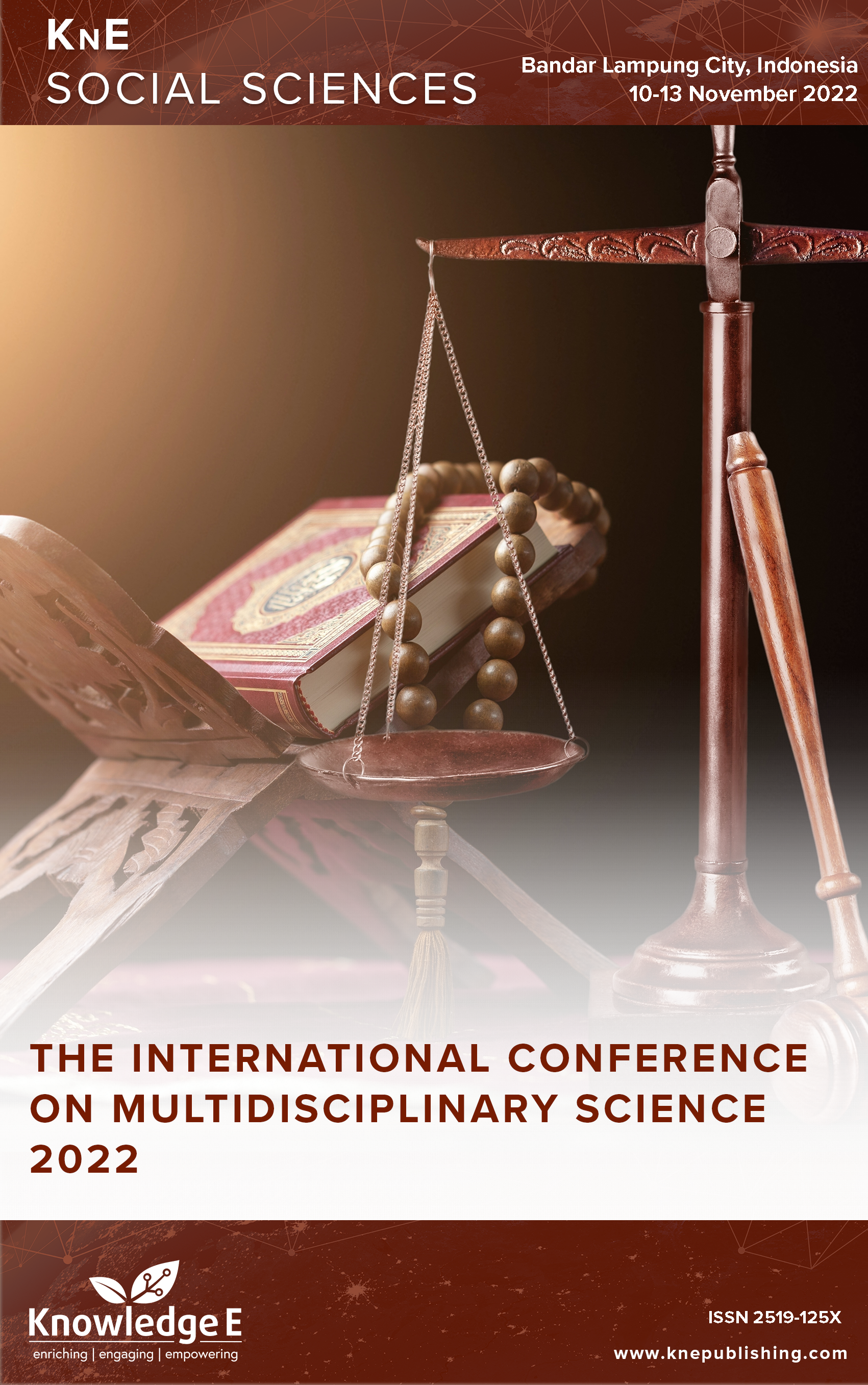Democracy Volunteer Strategy in Increasing Participation of People With Disabilities at the Mayor Election in Bandar Lampung 2020
DOI:
https://doi.org/10.18502/kss.v8i16.14064Abstract
Disabilities can occur either physically or mentally. This is often what undermines people with disabilities, while political participation is an important aspect in a democratic state. There was an increase in the participation of people with disabilities, based on PKPU No. 8 of 2017 through 10 existing socialization methods. This study looks at volunteer democracy strategies involving the planning, ideas, and execution of an activity, and the obstacles that affect socialization. Participation of persons with disabilities in the Mayoral Election in Bandar Lampung in 2020 reached 97% of the total DPT of 745 people, which was very different to the participation of people with disabilities in 2015. This figure was only 87% of the total number of DPT which is only 141 people. The method in this research is a qualitative descriptive research approach using the snowball sampling technique. The data collection process was done using observation, interview and documentation techniques. Analysis of the data used several stages, namely the data reduction stage, the data presentation and the data verification stage using a data triangulation method. The theory in this study employs theoretical indicators from Firmanzah which is a political strategy in which there is a strategy (message and media) that looks at the supporting and inhibiting factors of democratic volunteers in socialization. The results of this study indicate that the participation of persons with disabilities in the 2020 Bandar Lampung Mayoral Election experienced an increase, from the total number of DPT 745 people and 729 participating. Messaging and media strategies carried out by democracy volunteers using face-to-face communication socialization methods and social media is an effective strategy because it can reach people with disability in all aspects. The participation of persons with disabilities is also increasing, supported by two factors. Factor supporting facilities like supporting facilities, village officials support, organizers (KPPS), and many DPT (permanent voter lists) have been recorded. Inhibiting factors include the lack of sensitivity from the community housing for persons with disabilities, and persons with mental disabilities who have voting rights are mobilized. As there have been many records of persons with disabilities, this study can futher increase the participation of persons with disabilities in the next election to a 100%.
Keywords: Political Participation, Persons with Disabilities and Political Strategy.
References
[2] Fitria CF, Protested by Prabowo’s camp, this is an explanation for mentally retarded voters based on the Constitutional Court’s decision, KOMPAS.com. Cartono, Kartini. 2019.
[3] Political Pathology. In Volume II. Jakarta: PT. King of Grafindo Persada. 2009.
[4] KPU. Considering Considering General Election Regulations Number 10 of 2015. 2015.
[5] KPU. Implementation Guidelines (Volunteers for Democracy) Election Relations 2019. Jakarta: Election Smart House; 2019.
[6] PKPU. General Election Commission Regulation No. 8 of 2017 concerning Socialization. Voter Education and Community Participation in the Election of Governors and Deputy Governors, Regents and Deputy Regents, and/or Mayors and Deputy Mayors; 2017.
[7] Mr. Dedy Triadi. Interview with the Chairman of the Bandarlampung City KPU. Face to Face Interview. August 10, 2021.
[8] Mr Robiul. Interview with the Legal Division Commissioner. Interview Via Whatsapp. August 10, 2021.
[9] Mr Indrawan. Physically Disabled Persons. Interview Via Whatsapp. August 14, 2021. Mr. Sukoyoso. Deaf People. Interview Via Whatsapp. August 12, 2021. Hamid Fahmi. Democracy Volunteer. Face-to-face interview. July 22, 2021.

